
A way from the water, you probably don’t assemble your favourite rod and swish it about. It’s unlikely you’ll have seen it since the last time you fished. It’s a good one and it cost the best part of £900. It was designed by the best in the business, weighs nothing, doesn’t require any maintenance and casts effortlessly. It’s not especially interesting to look at but who cares — it’s the quality of the fishing that really matters, not the tackle, surely.
While most fishing is done with superb, affordable carbon-fibre rods, a stubborn minority appear to think that fishing with split cane places them in a more sensitive, poetic milieu. Are they rather fey eccentrics, these cane lovers, or is there some real substance behind the enduring appeal of these rods?
It’s worth noting that America’s most engaging, thoughtful and popular fly-fishing writer, John Gierach, is a devotee of split cane.
Here, Chris Yates, regarded by many as the finest writer about angling in the modern age, is also a lifelong cane advocate. When angling and its paraphernalia is depicted in art — Robin Armstrong comes to mind— it’s always a cane rod that the angler is using or that lies on the bank next to the catch.
So what is it that some of us find so appealing about fishing with a rod made from a variety of giant grass cultivated on a windy hillside in an obscure region of rural China? Why should we bother to invest in the defining instrument of our sport if its manufacture and materials haven’t altered for more than a century?
This story is from the {{IssueName}} edition of {{MagazineName}}.
Start your 7-day Magzter GOLD free trial to access thousands of curated premium stories, and 9,000+ magazines and newspapers.
Already a subscriber ? Sign In
This story is from the {{IssueName}} edition of {{MagazineName}}.
Start your 7-day Magzter GOLD free trial to access thousands of curated premium stories, and 9,000+ magazines and newspapers.
Already a subscriber? Sign In

United we stand
Following United Utilities' decision to end grouse shooting on its land, Lindsay Waddell asks what will happen if we ignore our vital moors

Serious matters
An old gamebook prompts a contemplation on punt-gunning
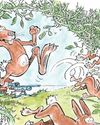
They're not always as easy as they seem
While coneys of the furry variety don't pose a problem for Blue Zulu, he's left frustrated once again by bolting bunnies of the clay sort
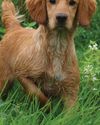
Debutant gundogs
There's lots to think about when it comes to making the decision about when to introduce your dog to shooting

When the going gets rough
Al Gabriel returns to the West London Shooting School to brush up on his rough shooting technique

The Field Guide To British Deer - BDS 60th Anniversary Edition
In this excerpt from the 60th anniversary edition of the BDS's Field Guide To British Deer, Charles Smith-Jones considers the noise they make
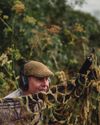
A step too far?
Simon Garnham wonders whether a new dog, a new gun and two different fields in need of protection might have been asking too much for one afternoon's work
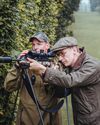
Two bucks before breakfast
A journey from old South London to rural Hertfordshire to stalk muntjac suggests that the two aren't as far detached as they might seem
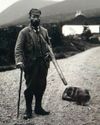
Stalking Diary
Stalkers can be a sentimental bunch, and they often carry a huge attachment to their hill

Gamekeeper
Alan Edwards believes unique, private experiences can help keepers become more competent and passionate custodians of the countryside